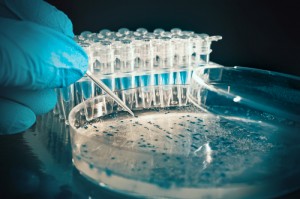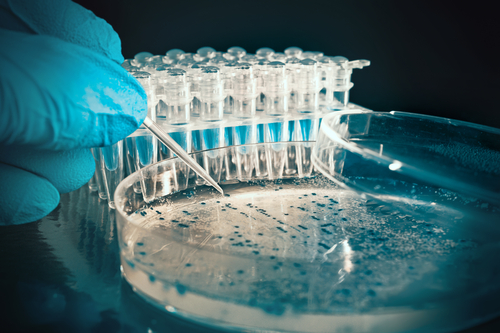 Ulcerative colitis is a form of inflammatory bowel disease (IBD), an inflammation of the colon characterized by ulcers, with a yearly incidence of 1 to 20 cases per 100,000 individuals, and a prevalence of 8 to 246 per 100,000 individuals.
Ulcerative colitis is a form of inflammatory bowel disease (IBD), an inflammation of the colon characterized by ulcers, with a yearly incidence of 1 to 20 cases per 100,000 individuals, and a prevalence of 8 to 246 per 100,000 individuals.
UC is an intermittent disease, with periods of exacerbated symptoms, such as constant diarrhea mixed with blood, and periods that are mostly symptom-free. Although the symptoms of ulcerative colitis can sometimes diminish spontaneously, the disease normally requires treatment in order to go into remission.
Even though this disease has no known cause, researchers believe that there are probably genetic factors that contribute to its susceptibility in patients, along with some environmental factors as well.
Furthermore, evidence exists for the pathogenic role of the enteric flora in ulcerative colitis. Since probiotics contain living microorganisms that exert health effects on the host, the probiotic bacterium Escherichia coli Nissle 1917 (EcN) has been used to maintain and induce clinical remission in UC.
A team of researchers from Hvidovre University Hospital, Copenhagen, Denmark, designed a single-center double-blinded randomized placebo controlled clinical trial to study the effect of Ciprofloxacin and/or orally administered EcN as add-on to conventional therapies in patients with active UC.
A total of 100 patients with a Colitis Activity Index (CAI) score of at least 6 were recruited and randomly assigned 500 mg ciprofloxacin twice daily (n=25) or placebo (n=25) for 1 week, followed by 100 mg E. coli Nissle (EcN; n=25) daily for 4 days followed by 100 mg twice daily for the remainder of the period or placebo (n=25) for 7 weeks. All four regimens were administered as adjunctive therapy.
The researchers were surprised to find that patients included in the group receiving placebo/EcN reached less remission (54%) then the ones receiving placebo/placebo (89%). Moreover, 78% of patients treated with Cipro/placebo and 66% treated with Cipro/EcN reached remission.
Additionally, the group receiving placebo/EcN had the largest number of withdrawals, 11 of 25 (44%) when compared to 15 of 75 (20%) in any of the other groups.
Patients treated with placebo/Nissle exhibited poor mucosal healing, since only 29% of these patients reported no blood in stools at week 12 of treatment, compared to 63%, 67% and 65% of patients treated with Cipro/Nissle, Cipro/placebo or placebo/placebo.
Contrary to previous studies where E. coli Nissle 1917 showed efficacy and safety in maintaining UC remission, the clinical data from this study suggest that using E. coli Nissle as an add-on treatment to conventional therapies for active ulcerative colitis is not effective. Also, patients treated with E. coli Nissle who did not received a previous antibiotic cure, had fewer chances to achieve clinical remission.

